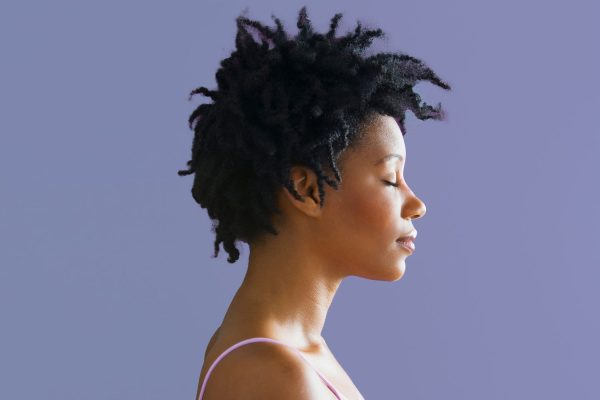
For ages, free spirits and trendsetters have worn dreadlocks, which are the rebellious strands of cultural heritage and self-expression. Yet, amidst the admiration for this unique hairstyle, whispers persist – do dreadlocks cause hair loss? It’s a question that swirls in the minds of those considering the journey into the world of knotted locks. In this article, we’ll explore the mysterious relationship between dreadlocks and hair loss, and divulge the techniques for keeping a head full of colorful, healthy hair.
Do Dreadlocks Cause Hair Loss?
Understanding the Basics:
Dreadlocks are formed through deliberate matting and knotting of hair in order to produce individual, rope-like filaments. Differentiating between hair breakage and actual hair loss is of utmost importance, as they represent two separate concerns. Hair breakage is characterized by the snapping or splitting of individual strands, whereas hair loss is characterized by the complete discharge of hair follicles.
The Role of Tension:
A prevalent apprehension is that the tension generated during the establishment and upkeep of dreadlocks could result in a shedding of hair. Although it is accurate to say that excessive tension can lead to fracture, this risk can be substantially reduced through proper care and maintenance.
Root Causes of Hair Loss:
A variety of factors, including genetics, hormonal fluctuations, diet, and general health, can contribute to hair loss. There is a lack of definitive evidence to support the claim that properly created and maintained dreadlocks cause permanent hair loss. Nevertheless, personal experiences might differ, and it is critical to take into account one’s own hair health, styling techniques, and care regimen.
Proper Maintenance and Techniques:
To minimize the risk of hair breakage, individuals with dreadlocks should adopt proper maintenance techniques. Regularly moisturizing the hair and scalp, avoiding excessive tension during the locking process, and gentle detangling can contribute to healthy dreadlocks without compromising the integrity of the hair.
Common Causes of Breakage
Excessive Tension: Pulling the hair too tightly during the creation and maintenance of dreadlocks can lead to breakage. Opt for methods that provide structure without excessive force.
Infrequent Maintenance: Failure to perform routine maintenance, including but not limited to cleansing, moisturizing, and retightening, may result in the occurrence of fracturing. Ensuring the health of both the dreadlocks and the underlying hair requires consistent maintenance.
Inadequate Detangling: Consistent detangling is necessary to prevent matting and alleviate tension in dreadlocks. By detangling gently with a fine-toothed comb or one’s fingertips, breakage can be avoided.
Note: It is required that you seek the assistance of a professional beautician if you are experiencing excessive breakage or have concerns regarding the health of your hair. They are capable of evaluating the state of your hair, offering customized recommendations, and resolving any concerns that could be causing breakage.
Frequently Asked Questions About Do Dreadlocks Cause Hair Loss
Q1: Do Dreadlocks Cause Hair Loss?
No, having dreadlocks does not inherently cause hair loss. The key is in the maintenance. Proper care, gentle techniques, and attention to your hair’s unique needs can ensure that dreadlocks remain a stylish choice without compromising hair health.
Q2: Is it true that tight dreadlocks lead to hair loss?
Excessive tension from tightly created or maintained dreadlocks can contribute to breakage, but this isn’t permanent hair loss. Opting for methods that provide structure without excessive force and regular maintenance can mitigate this risk.
Q3: How can I prevent breakage while having dreadlocks?
Preventing breakage involves proper maintenance. Regularly moisturize your hair and scalp, avoid excessive tension during the locking process, and ensure consistent care with gentle detangling. This helps keep both your dreadlocks and underlying hair healthy.
Q4: Can I still have healthy hair with dreadlocks?
Absolutely. Healthy hair and dreadlocks can coexist with the right care. Adopting a regular maintenance routine, using suitable products, and being mindful of tension during styling is crucial for maintaining healthy hair while enjoying the style of dreadlocks.
Q5: Do I need to consult a professional for dreadlocks maintenance?
While many successfully maintain their dreadlocks at home, consulting a professional hairstylist can be beneficial. They can assess your hair’s condition, provide personalized advice, and address any concerns or issues contributing to breakage.
Q6: Can I transition from dreadlocks to another hairstyle without cutting my hair?
Yes, you can transition from dreadlocks to another hairstyle without cutting your hair. Carefully detangling the dreadlocks with the right tools and products is key. This process may take time, so patience and a gentle approach are crucial.
Q7: Are certain hair types more prone to breakage with dreadlocks?
Hair type can influence breakage, but proper care is essential for all hair types. Individuals with finer hair may need to be particularly mindful of tension during the locking process to minimize stress on the strands.
Q8: Can I reuse hair from removed dreadlocks for extensions or other purposes?
In most cases, it’s challenging to salvage hair from dreadlocks for reuse due to the nature of the locking process. Attempting to reuse the hair may cause damage, and it’s generally recommended to start fresh if you’re considering extensions or another hairstyle.
Wrap Up
In conclusion, it is untrue that dreadlocks are inherently detrimental to hair health. Dreadlocks can be a fashionable and unique hairstyle that does not compromise the health of the hair when they are created and maintained with care. Adhere to the specific requirements of your hair, prioritize proper maintenance, and employ delicate techniques in order to appreciate the aesthetic appeal of dreadlocks without concerns regarding hair th apprehension. It is crucial to bear in mind that cultivating healthy hair, be it in dreadlocks or another style, requires conscientious maintenance and focus.

Leave a Reply